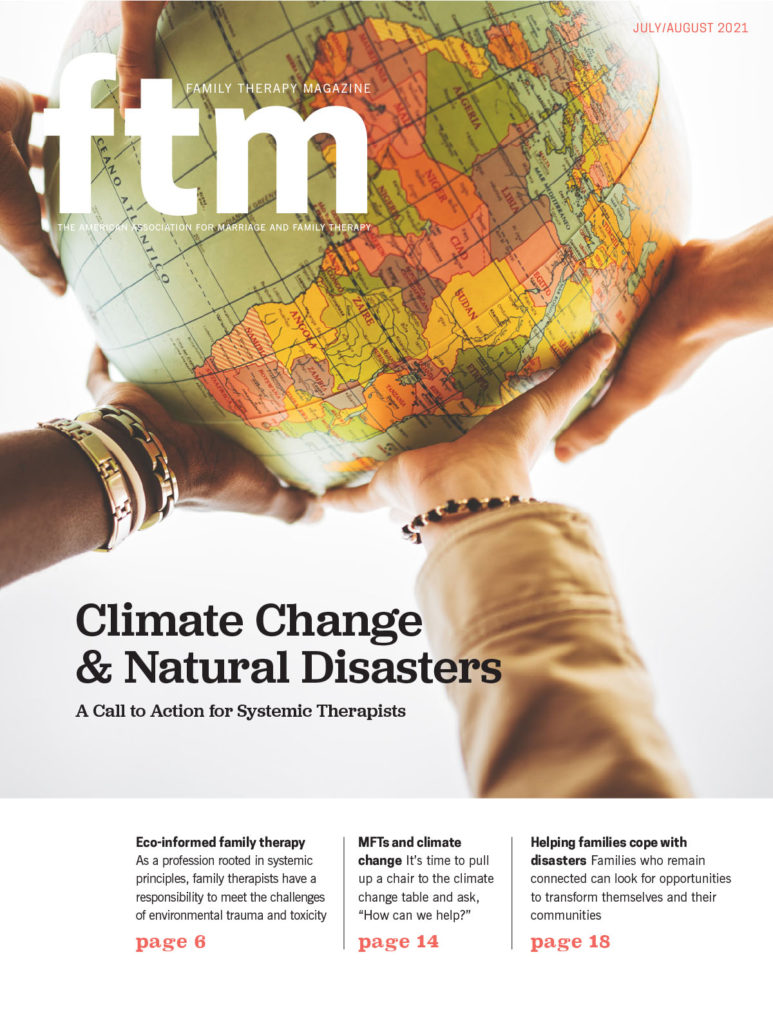JULY / AUGUST 2021 VOLUME 20, NO. 4
Climate Change & Natural Disasters: A Call to Action for Systemic Therapists
Attending to the Whole System: Eco-Informed Family Therapy
Through our widespread abuse of the environment and our refusal to accept that humans are a part of the ecosystem—not separate from it—our own well-being is in peril. Systemic therapists are ideally suited to embrace eco-informed family therapy.
Tracey A. Laszloffy, PhD and Markie L. C. Twist, PhD
MFTs and Climate Change: A Call to Action
The frequency and intensity of natural disasters are increasing across the globe and MFTs can no longer afford to stand idly by. It’s time to pull up a chair to the climate change table and ask, “How can we help?”
Kyle Horst, PhD
When a natural disaster wipes out a family home or a climate emergency like Hurricane Sandy displaces large numbers of people, those narratives that shape our collective identity are at risk of disappearing.
Helping Families Cope With Disasters
A disaster doesn’t have to mean family problems if families remain connected and look for opportunities to transform themselves and their communities.
Michael Ungar, PhD
Systemic Therapists on the Frontlines of Climate Change
Research suggests that although many people fare well following a disaster, the need for immediate mental health intervention typically outweighs existing mental health infrastructure, especially in communities where health inequities pervade. Mental health therapists are “front line workers” —ready, willing, and able to support people during and after a disaster.
M. Mittal, PhD, A. A. Morgan, PhD, and E. Wieling, PhD
An Overview of the Red Cross and Disaster Mental Health
Karen H. Koski-Miller, LCSW-C
